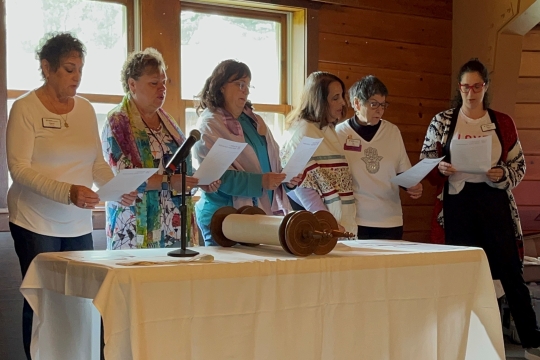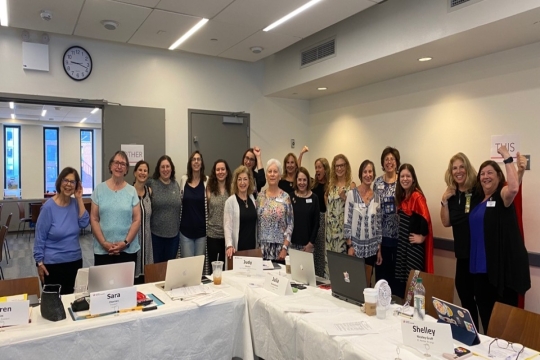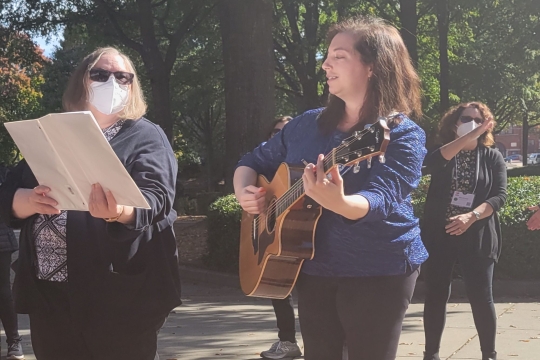
In last week’s Torah portion (Ki Tisa), the Israelites gathered against Aaron (Moses’ brother) to demand that he led them to make the Golden Calf as an idol to represent God as they were unsure when or if Moses would be returning. As we move into this week’s Torah portion, Vayak’heil-P’Kudei, the people are struggling to trust God and find a way to rebuild the relationship. This double Parashot concludes the book of Exodus, establishes Shabbat and the building of the Mishkan, the Tabernacle.
In this Parashat, God gives incredibly detailed instructions on building the Mishkan, including the frame, the metalwork, the jewels, and the tapestries. The Israelites needed a reason to come together to give God space within the community and help reconcile the relationship between God and the people of Israel.
When I read Parashat Vayak’heil-P’Kudei, I think about how we as people today make room for God in our lives. Over the past year, I feel that there was so much hate and unrest, so many acts of violence, and isolation, that we as people are in a time of struggle and maybe losing faith, losing connection to the community, and losing hope for what the future holds. I look at the directions to build the Mishkan and can’t help but compare it to these times during the pandemic and the part we are playing in supporting one another, healing our community, and our country by wearing a mask, social distancing, and learning to belong and come together in a virtual world. Even in this virtual world, we can still uphold the establishment of Shabbat. How you establish this will look different in your household, but the importance comes more from using Shabbat to create sanctity as a time to rest, connect with God and our community.
Throughout our history, we have shown that we can see the light through the darkness. Let us remember that we can come together as a community. We can be present for others. We can appreciate others and the differences between us. We can continue our work of making this world a better place, just as the Israelites came together to build the Tabernacle. Without each person’s gifts, willingness to be open and generous, and giving of themselves, the Tabernacle would not have existed.
The process of making the Mishkan as a direct commandment from God enabled the Israelites to heal their relationship with God and restore their faith. Just as all Israelites, men, women, children helped build the Mishkan, our healing comes through the inclusion of all people. Proverbs 21:21 says, “A person who strives to do good and kind deeds attains life, success, and honor.” Let us all strive to be that person.
Holly Plotnick currently serves as an area director for WRJ Mid-Atlantic District and President of Temple B’nai Shalom Sisterhood in Fairfax Station, VA. She also serves on the WRJ North America board. Holly is married and a mom to two wonderful kiddos (age 7 and 12).
Related Posts

Parashat Yom Rishon shel Rosh HaShanah

Cultivating a Culture of Accountability and Belonging

